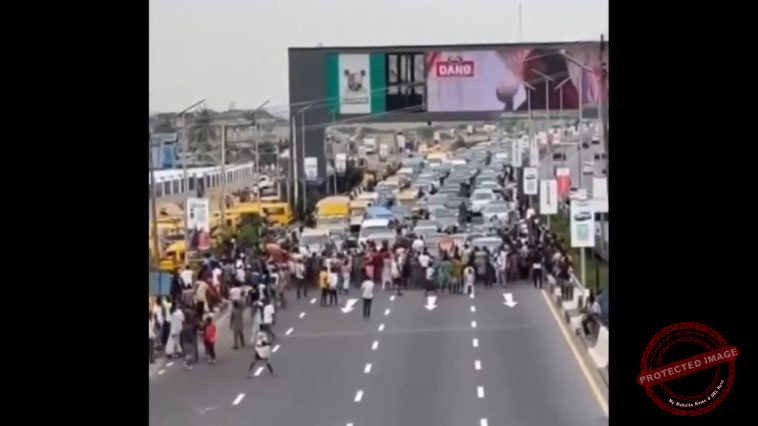Follow
X
Follow
Lagos erupted in anger after hundreds of Oworonshoki residents were forcefully evicted in a shocking midnight demolition that saw families driven from their homes at 1 a.m. by armed security operatives. Bulldozers rolled in under the cover of darkness, tearing through houses while men of the Nigerian Police, Lagos Task Force, NSCDC, and Neighborhood Watch gave residents only seconds to leave. By morning, displaced families and community members marched to the 3rd Mainland Bridge, blocking the Oworonshoki section in protest.

“If they don’t stop this demolition, 3rd Mainland Bridge is the people’s property—we will sleep here!” one protester declared, as the crowd turned the critical highway into a stage of resistance.
Human rights groups condemned the action, describing it as part of a long pattern of illegal forced evictions in Lagos that have displaced more than 2.3 million people since 2000. Amnesty International branded the operation inhumane, while SERAP vowed legal action against the Lagos State Government. Critics say these demolitions are rarely about urban renewal but about clearing land for billion-dollar real estate projects.

The Oworonshoki eviction echoes past demolitions in Lagos, including Otodo Gbame in 2017, where 30,000 people were rendered homeless, and the infamous Maroko clearance in 1990, which uprooted 300,000 residents to make way for some of the most expensive estates in Nigeria today. With land prices in Oworonshoki surging more than 400% in the past decade due to its strategic location by the 3rd Mainland Bridge, many fear the community will soon be replaced by luxury housing or commercial developments far beyond the reach of ordinary Lagosians.
This struggle also reignites debate around mega-projects like Eko Atlantic City, often hailed as a new financial hub but condemned by activists as a symbol of “urban apartheid”—a glittering city for the rich built on the suffering of displaced Lagosians. While Lagos pursues luxury estates and foreign investment, the city faces a housing deficit of more than 3 million units, leaving millions in slums vulnerable to future demolitions.







 WhatsApp us
WhatsApp us